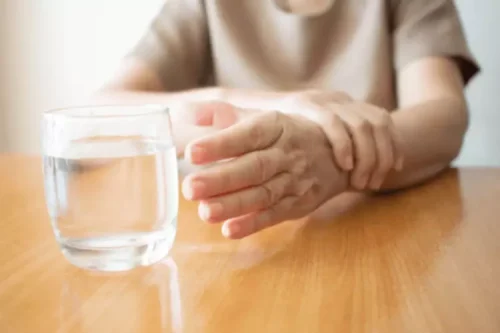How to Pass an Alcohol Urine Test for Probation
Alcohol is a depressant that has a short life span in the body. As the alcohol hits your liver, the organ responsible for clearing toxins out, the liver responds by producing the enzyme alcohol dehydrogenase. Alcohol dehydrogenase breaks the booze down into ketones that exit your body via pee, sweat, or breath.
Next stop: the liver
Alcohol is also metabolized by the kidneys and excreted from the body through urine. It’s best to avoid any type of drinking before bed, but it’s especially important to cut out alcohol. Like caffeine, alcohol is a diuretic that makes your body produce more urine, so consuming alcoholic beverages in the evening will likely lead to you urinating more at night. Understanding and managing alcohol’s diuretic effect is crucial for avoiding potential dangers such as the ones mentioned above. People who begin with blood alcohol levels of 0.20 will take between 12 and 14 hours to process the alcohol in their system. If you’ve been drinking heavily and/or regularly, suddenly stopping or cutting back on alcohol can cause physical and psychological symptoms of withdrawal.
What factors affect how long alcohol stays in your system?
As with many tests, urine tests are not accurate 100% of the time. Someone may test negative for drinking alcohol when they have had alcohol recently. The Ethyl Glucuronide (EtG) urine test can detect the presence of any alcohol consumption in the urine. how to get alcohol out of your pee Ethyl Glucuronide is present in the body after consuming alcoholic beverages. Minimizing your fluid intake before bed is another strategy to help you pee less during the night. If possible, don’t drink anything for two hours before you go to sleep.
Test for Abstinence Versus Intoxication
The severity will depend on how long you’ve been using alcohol and how much you usually drink. While these techniques create the illusion of sobriety, they have no effect on BAC. Although eating before a night of drinking will slow down alcohol absorption, it will not keep you sober as you continue to drink. Eating after a few drinks will not reduce your level of intoxication because food does not have an effect on alcohol that has already been absorbed into the bloodstream. Factors that determine how long alcohol stays in your body include liver size, body mass and the amount of alcohol consumed.
How long does alcohol stay on your breath?
Measuring the alcohol in approximately 2,100 ml of breath is equal to testing for the same substance in 1 ml of blood. If you are planning to pass a urine test for alcohol, make sure to use those high-quality options on tests available. Some employers use instant kits in conducting random, pre-employment and post-accident test kits. The longer alcohol is in your body, the stronger the effect it has. Sian Ferguson is a freelance health and cannabis writer based in Cape Town, South Africa. She’s passionate about empowering readers to take care of their mental and physical health through science-based, empathetically delivered information.
Hair Tests (90 Days)
Or maybe you’re just looking to improve your health, wake up hangover-free and give your liver (and your heart and brain) a break. Generally, it’s not a good idea to resist the urge to urinate when you feel like you need to go. Holding it in repeatedly can increase your risk for urinary tract infections (UTIs) and affect your bladder-brain connection that signals when you need to pee. “Breaking the seal” is a term used for the first time a person pees when they’re drinking alcohol. When you’re ready to quit or reduce the harm alcohol is causing to your health and life, there are many resources to help. Many people also turn to support groups like Alcoholics Anonymous (AA).
How Long Does It Take to Feel Effects?
- Make sure to have a good amount of rest, allowing your liver to easily metabolize the alcohol that entered your body.
- The blood alcohol concentration (BAC) is how much alcohol is in your blood and is the most precise way to measure intoxication.
- However, when your goal is to flush out alcohol from your body, you should drink more of it.
- Your experience of the condition’s toxic effect differs depending on whether you are in the acute or chronic phase.
You would have a problem trying to pass a test that is designed to detect the presence of any alcohol. When misused, alcohol can do as much (or even more) overall harm as many illegal drugs. People who misuse alcohol also risk developing physical and psychological dependence and alcohol use disorder (AUD). If you don’t have enough ADH or ALDH, your stomach will send the alcohol directly to the small intestine. From there, it hits your bloodstream and your brain, and you start feeling its effects. The liver breaks down most of the alcohol, though the substance also passes through the kidneys, urine, skin and lungs.
Overexposure to UV radiation can also weaken the body’s immune system and the skin’s ability to protect itself from infections, according to the U.S. Millions of Americans wake up to use the bathroom while they should be sleeping, and if you’re one of them, you’re probably not thrilled about it. Fortunately, you can use these tips and tricks to get a better night’s rest. Korin Miller has spent nearly two decades covering food, health, and nutrition for digital, print, and TV platforms. Her work has appeared in Women’s Health, SELF, Prevention, The Washington Post, and more. But for people with mild symptoms or uncomplicated infections, it may be appropriate to first try at-home remedies.
- And until the body completely breaks down alcohol, it’s detectable in sweat, urine, and breath.
- Gluten is a highly inflammatory food and should be removed from everyone’s diet.
- Once swallowed, alcohol enters the digestive system, travels to the stomach and small intestine, and is absorbed into the bloodstream.
- The above times reflect the metabolism rate of a healthy, functioning liver.
- Age, weight, food intake during alcohol consumption, medications, liver health, and the time between drinks all contribute to how long alcohol remains in your body.








